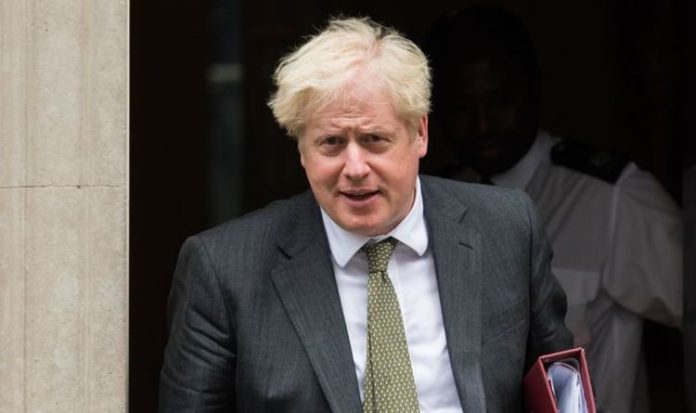State aid – not to be confused with international or humanitarian aid – provides British companies with government funding and support in order to improve their business. Prior to Brexit, the EU had a role in deciding which UK businesses would be allowed or disallowed from receiving aid in this way in order to maintain fair competition.
Also referred to as a ‘level playing field’, subsidy control remains one of the main reasons the UK and EU still have not been able to agree on a trade deal this year.
However, one policy expert has said the EU’s subsidy rules were particularly tough, meaning businesses often had to jump through hoops to receive government assistance.
Thomas Pope, Senior Economist at the Institute for Government think tank, has said the UK is now in a position to design its own system which would not only be better for businesses, but also remove a key stumbling block in negotiations.
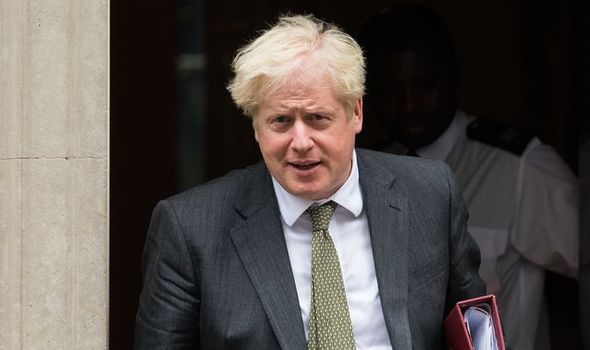
Boris Johnson is yet to implement a post-Brexit state aid policy (Image: WIktor Szymanowicz / NurPhoto / Getty)
He told Express.co.uk: “I think what the government can and should do is design a better system than the EU.
“The EU rules have quite a low threshold upon which they kick in. And that means there a lot of subsidies that are very small – and aren’t really going to distort competition – that a local authority has to jump through hoops and hire a lawyer to ensure they’re being consistent with state aid rules for a relatively small subsidy – say to a local swimming pool.
“It’s true the EU rules are very stringent, and the UK could probably design a less stringent set of rules that would still work as an effective regime that might mean a bit less red tape for small businesses and small local authorities.”
READ: Brexit bombshell: Lorry drivers will need permit to enter Kent under Gove’s exit plans
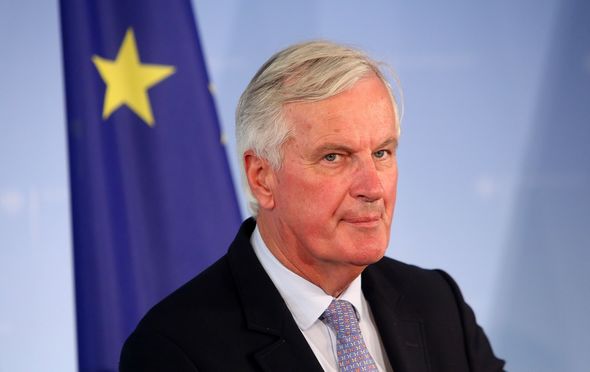
State aid rules are one of the key hurdles facing Brexit negotiators such as Michel Barnier (Image: Adam Barry / Getty)
The issue of subsidy controls is also particularly important for Northern Ireland and Ireland.
According to Mr Pope, Article 10 of the Northern Ireland protocol – agreed by the government already – allows the EU to continue to rule on subsidies between Northern Ireland and Ireland after Brexit.
He added: “In the report, we acknowledge that Article 10 is problematic for the UK. A reasonable reading of article 10 is that it’s a pretty expansionist position that the EU has got.”
DON’T MISS:
Coronavirus rebellion: Boris Johnson must do FOUR things to avoid furious backlash [INFO]
Galileo mystery: ‘Where did the £92 million go?’ MP asks as UK plan to rival EU is scrapped [INSIGHT]
London braces for lockdown after health chief warns of ‘rising tide of coronavirus’ [ANALYSIS]
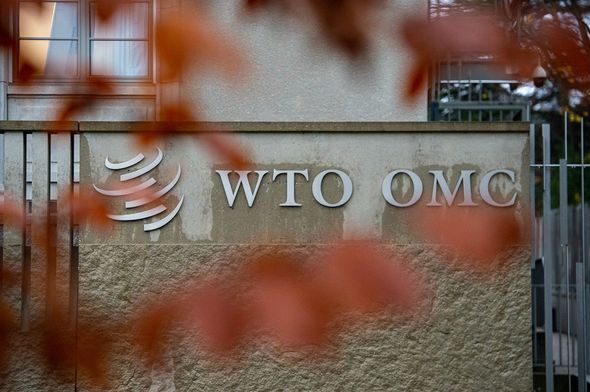
Mr Pope called the World Trade Organisation’s subsidy rules “ineffective”. (Image: Robert Hradil / Getty)
This could indirectly affect British companies as well, if they operate in both Northern Ireland and the British Isles.
Pope continues: “What we say in the paper is the best way to overcome Article 10 is to agree to a strong UK legal regime that gives the EU sufficient confidence that we’re not going to start offering loads of subsidies, and then allow the UK regime to effectively supersede Article 10.
“That would mean the UK committing to having a strong regime that the EU can trust, that then allows the EU to cede control of state aid in Northern Ireland to the UK.”
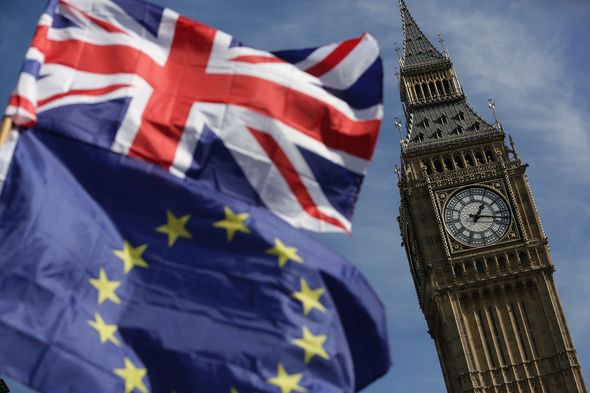
An expert has said the EU’s own state aid rules mean the UK has to “jump through hoops” to meet them (Image: Daniel Leal-Olivas / AFP / Getty)
Lastly, If the UK does not end up designing its own subsidy control policy, the government will instead revert to World Trade Organisation standards.
Mr Pope thinks this would not be ideal, referring to these standards as “ineffective” where smaller subsidies are concerned.
There is also another key reason – it could drag the UK into trade wars with other nations.
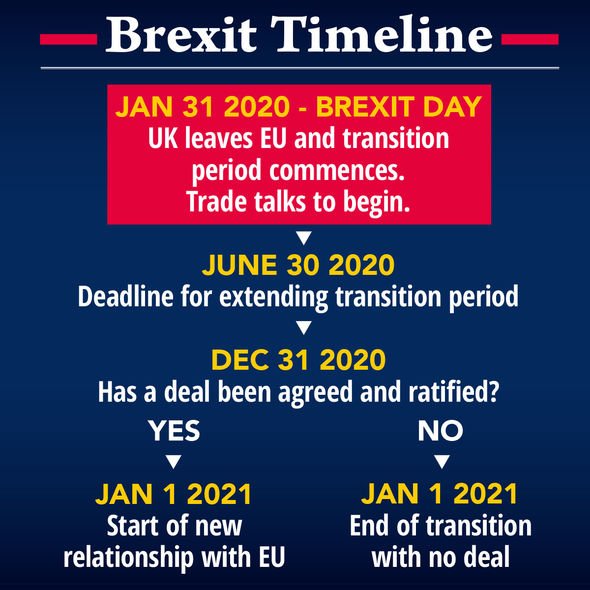
Brexit timeline (Image: EXPRESS)
Mr Pope added: “The other reason is EU state aid rules require that when you find a subsidy is illegal, there a remedy. So it’s required a beneficiary has to pay back the subsidy to the government that offered it, and effectively that corrects the distorting effect.
“Under WTO rules the only recourse is for a state to put tariffs on the other country – a retaliation. And that can be effective but that can harm the other country.”
With just months left in order to implement a subsidy control policy, several lawyers have even offered the government their help in designing one – highlighting the level of concern.
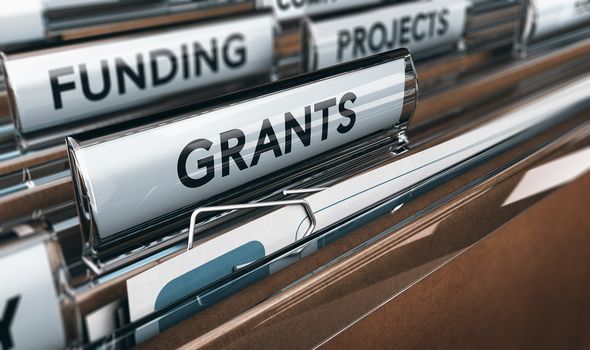
State aid rules control how the government provides assistance to companies. (Image: Olivier Le Moal / Getty)
However as of yet, a UK subsidy control scheme is yet to be delivered with trade talks still struggling. According to Mr Pope, there is still time left to fix the issue.
He concluded: “It’s worth saying that even despite all of the Internal Market Bill stuff, the EU are still negotiating – they haven’t walked away from the table. I don’t think state aid needs to be the hill that the government dies on.”
